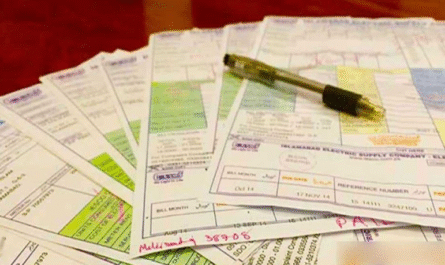The Prime Minister’s Free Laptop Scheme, introduced to empower students with digital resources, has been making headlines once again—this time, for all the wrong reasons. According to recent reports, over 1,000 laptops distributed under the scheme have gone missing, raising serious concerns about transparency, accountability, and the monitoring mechanisms in place to ensure that such public-funded initiatives reach their intended beneficiaries.
The scheme, originally launched to bridge the digital divide and equip students with the tools necessary for higher learning, has helped thousands of students across Pakistan. However, the news of missing laptops has triggered debates regarding the misuse of resources, poor oversight, and corruption in handling government programs.
Background of the PM Laptop Scheme
The Prime Minister’s Laptop Scheme was initiated under the Prime Minister’s Youth Program, aimed at distributing free laptops to talented students in universities and colleges. The core idea was to improve access to digital education, promote e-learning, and support students in their research, assignments, and online learning activities.
The scheme has seen multiple phases, benefiting hundreds of thousands of students. In an era where technology is central to education, especially after the COVID-19 pandemic, laptops have become an essential learning tool. That’s why the discovery that over 1,000 laptops are unaccounted for has not only shocked students but also sparked criticism from opposition parties and civil society groups.
How Did the Laptops Go Missing?
Reports suggest that the missing laptops were supposed to be distributed among students in specific universities. However, due to poor record-keeping, lack of verification, and weak monitoring, these laptops either never reached the intended students or were mishandled during distribution.
Some sources claim that ghost entries in student lists, duplicate beneficiaries, and possible collusion of officials might be behind the disappearance. Others argue that logistical mishaps and inadequate inventory tracking systems led to the problem. Regardless of the reason, the missing laptops have exposed loopholes in the execution of the scheme.
Concerns Raised by Students and Parents
The news has naturally created frustration among students who were eagerly waiting to receive laptops. For many, especially those from low-income families, the scheme was a golden opportunity to own a personal computer, which they could not otherwise afford. Parents, too, have expressed disappointment over how public money is mishandled, questioning the government’s seriousness in ensuring fair distribution.
Students also fear that this incident may tarnish the image of the scheme, making it harder for genuine beneficiaries to access laptops in future phases.
Political and Public Reaction
Opposition leaders have wasted no time in criticizing the government, accusing it of negligence and corruption. They argue that billions of rupees from taxpayers are spent on such programs, but without strict monitoring, resources are either wasted or misappropriated.
Civil society organizations and education experts have also raised concerns, urging the government to investigate the matter thoroughly and hold those responsible accountable. They warn that such scandals can reduce public trust in government initiatives, even those that are designed to benefit society.
Government’s Response
In response to the controversy, government officials have stated that a formal inquiry has been launched. Committees have been formed to investigate how the laptops went missing and to identify the people responsible. Authorities claim that the issue might have arisen due to errors in distribution records rather than deliberate corruption, but a full investigation is needed to confirm this.
Officials have also promised to introduce stricter mechanisms, such as digital tracking systems, biometric verification, and centralized monitoring to prevent similar incidents in the future.
The Need for Better Monitoring Systems
The disappearance of laptops highlights the urgent need for accountability and transparency in public-funded programs. Some measures that could be introduced include:
- Digital Inventory Tracking – Each laptop should be tagged with a unique ID, linked to the student’s registration number, ensuring traceability.
- Biometric Verification – Distribution should be carried out only after fingerprint or face ID verification to avoid ghost entries.
- Third-Party Audits – Independent audit firms should be tasked with verifying distribution records and reporting irregularities.
- Transparency Portals – A public online portal where students can check their eligibility, distribution status, and track whether they have received the laptop.
- Strict Penalties – Officials or distributors involved in mishandling resources should face strict penalties, including suspension or criminal charges.
Impact on Students and Education
For students, particularly those from rural and underprivileged areas, this scandal is a setback. Laptops were meant to provide them with access to digital libraries, online courses, and research platforms. Missing laptops mean many students are once again left behind in the digital divide.
In today’s globalized world, where technology is driving careers and higher education, depriving students of these resources can have long-term consequences. It may affect their academic performance, competitiveness in university admissions, and even job opportunities in the future.
Looking Ahead
Despite the controversy, the PM Laptop Scheme remains an important initiative for students. The government must work to restore confidence by addressing the missing laptops scandal transparently and ensuring foolproof systems for future phases.
The program has the potential to empower millions of students, but only if implemented with strict accountability. Failure to do so will not only waste public funds but also shatter the hopes of deserving students who rely on such schemes to build a better future.
Final Thoughts
The revelation that over 1,000 free laptops from the Prime Minister’s Laptop Scheme have gone missing has raised serious questions about governance, transparency, and accountability in Pakistan. While the government has promised an inquiry, the damage to public trust is evident. Students, parents, and educationists are demanding justice, calling for those responsible to be held accountable.



